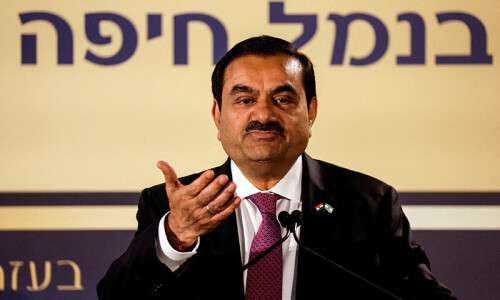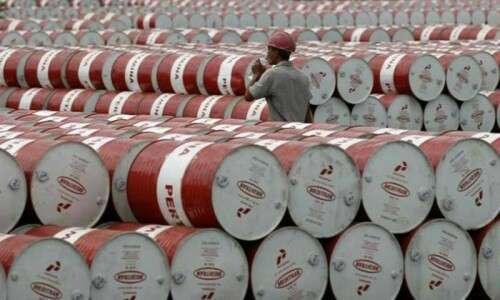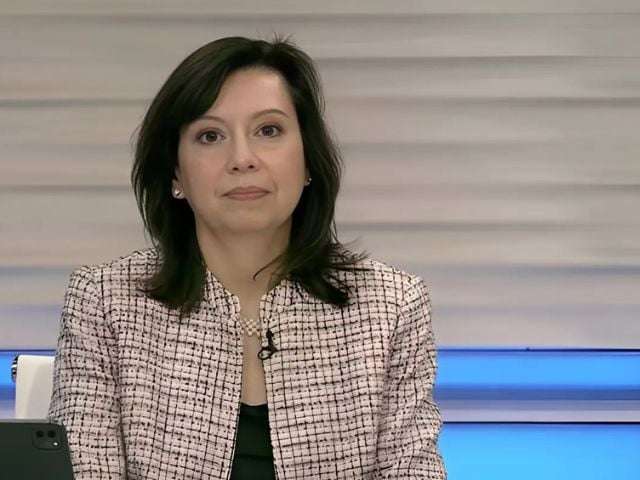In light of recent allegations of bribery against Adani Group, Indian banks are reviewing their exposure to the conglomerate, and some have started tightening their due diligence processes. This follows a recent indictment by U.S. authorities, which claims the Adani Group, led by billionaire Gautam Adani, was involved in a $265 million bribery scheme aimed at securing Indian power supply contracts.
While the group’s market valuation saw a dramatic drop of around $34 billion, it has since recovered somewhat, as investors and business partners have expressed continued support.
H1: Indian Banks Review Exposure to Adani Group Amid Bribery Scandal
The investigation has placed the focus on a range of Adani Group’s operations, raising concerns about potential fallout for both the conglomerate and the broader Indian economy. The exposure of Indian banks to Adani Group projects and companies has prompted an internal reassessment. However, financial institutions in India have indicated that they are not likely to make drastic changes to their lending strategies for ongoing Adani projects, particularly those nearing completion.
H2: Banks Continue to Lend But Exercise Caution
According to sources within several Indian banks, including State Bank of India (SBI), Bank of India, Union Bank, ICICI Bank, and others, there is a clear recognition of the need to proceed cautiously. State Bank of India has emphasized that it will not halt funding to existing Adani projects that are near completion. However, the bank will be more vigilant in ensuring that all terms and conditions of these agreements are fully met before disbursing any additional funds.
Other banks, such as Bank of India, ICICI Bank, and Canara Bank, are reportedly taking similar steps. They have expressed concern about Adani Group’s financial stability, especially after the scandal and the massive losses incurred on the stock market. While these banks have relatively smaller exposures compared to SBI, their ongoing scrutiny of the Adani Group is part of a broader trend toward more stringent due diligence in the Indian banking sector.
H3: The US Indictment and Its Impact on Indian Banks
The recent U.S. indictment against Gautam Adani and several members of the group has added a layer of complexity for Indian banks. The charges, which center on a bribery scheme designed to secure lucrative power supply contracts in India, have raised questions about the group’s financial and operational transparency. However, Indian banks have maintained that no entity within the country is overly exposed to Adani’s operations and that there is no immediate cause for alarm regarding the banks’ financial stability.
H2: International Backing and Market Reactions
Despite the ongoing scrutiny in India, Adani Group has received significant support from both international investors and governments. Israel, for instance, has voiced its desire for Adani to continue investing in the country, with Israel’s Ambassador to India, Reuven Azar, stating that the US bribery allegations did not affect the country’s stance on Adani’s investments. The Adani Group holds a 70% stake in the Haifa port, one of the most strategic locations in Israel, and is also involved in several joint ventures there.
In addition, Abu Dhabi’s International Holding Company (IHC), a key investor in the Adani Group, has reaffirmed its commitment to Adani’s green energy and sustainability projects. IHC’s backing serves as an important vote of confidence in the group’s long-term prospects, especially in sectors like renewable energy, where Adani has significant investments.
H3: Adani’s Resilience in the Face of Adversity
Despite the challenges, Adani Group’s stock market performance has shown signs of recovery. Stocks of companies within the group, particularly Adani Green Energy, have seen a significant increase in value, rising by 10% in a single day. This rally follows a sharp decline earlier in the week, which wiped off billions in market value.
The total market losses for Adani Group’s 10 listed companies, which at one point amounted to around $34 billion, have narrowed significantly to $14.5 billion, signaling investor optimism about the group’s prospects going forward.
H2: Global Impact and Investor Sentiment
Global investors have expressed concerns over the potential ripple effects of the bribery scandal, especially in terms of governance and transparency. There is, however, broad consensus that while the allegations may cause short-term volatility in the Indian stock market, they are unlikely to undermine long-term growth prospects for India. The country remains one of the world’s fastest-growing economies, and its consumer market continues to attract foreign investors.
Prime Minister Narendra Modi’s government has faced mounting pressure over the allegations against the Adani Group. Opposition parties have accused Modi and his Bharatiya Janata Party (BJP) of giving preferential treatment to Adani. However, the government has remained silent on the issue, while blocking opposition demands for a formal debate in Parliament. This has led to political unrest, with opposition lawmakers disrupting parliamentary proceedings over the matter.
H3: The Broader Political and Economic Context
Adani Group’s challenges are not limited to its relationship with Indian banks. The company has been under heavy scrutiny since January 2023, when Hindenburg Research, a short-seller, accused Adani of stock manipulation and of running up unsustainable debt levels. The allegations further intensified with the indictment by U.S. authorities, leading to a sharp decline in stock prices.
Additionally, credit rating agencies have downgraded the outlook for some Adani-listed bonds, reflecting the heightened risk perception in global markets.
H2: Global Reaction and Project Cancellations
The fallout from the scandal has been significant beyond Indian borders. In Kenya, a $2 billion procurement project that would have given Adani control of the country’s main airport has been scrapped. Similarly, Sri Lanka has called for an investigation into all Adani-related projects in the country. In Bangladesh, power generation contracts signed under the previous prime minister, which involved Adani Group, are also under investigation.
TotalEnergies, a French oil giant with a 20% stake in Adani Green, announced it would halt any further investments in Adani until there is more clarity on the situation. This decision underscores the global concerns surrounding the allegations and their potential impact on Adani’s operations.
H3: Adani’s Response to Allegations
Despite the gravity of the situation, Adani Group has vigorously denied the charges. The company maintains that the bribery allegations are baseless and that it is fully committed to transparency and compliance with international standards. It is also important to note that Adani Green Energy, the company at the heart of the scandal, has clarified that while it faces scrutiny, it has not been charged under the Foreign Corrupt Practices Act (FCPA) in the U.S.
The U.S. Securities and Exchange Commission (SEC) has filed a civil action against Adani for alleged violations of securities laws. However, the case is still ongoing, and no formal charges under the FCPA have been brought against the group as of now.
H2: Future Outlook: What Lies Ahead for Adani Group?
As the legal proceedings unfold, the future of Adani Group remains uncertain. The group’s financial strength, backed by its vast and diverse portfolio, gives it a certain level of resilience. However, the allegations have raised serious questions about its governance and financial practices.
The coming months will likely see continued scrutiny from regulatory bodies, both in India and abroad. Indian banks, too, are expected to proceed with caution when it comes to financing new projects involving Adani Group. The company’s response to the allegations and any further legal developments will be key to determining whether the group can weather this storm and regain investor confidence.
FAQs
1. What are the allegations against Adani Group? The Adani Group is accused of being involved in a bribery scheme to secure Indian power supply contracts. The allegations, raised by U.S. authorities, involve a $265 million bribe.
2. How have Indian banks reacted to the bribery allegations? Indian banks have reviewed their exposure to Adani Group and are exercising caution when disbursing loans to ongoing projects. However, no bank has completely halted its lending to Adani at this time.
3. What is the impact of the allegations on Adani’s stock market performance? While Adani’s stocks saw a sharp decline initially, they have since recovered, with significant gains in some companies like Adani Green Energy.
4. How has the Indian government responded to the allegations? The Indian government, led by Prime Minister Narendra Modi, has not made any official comment on the allegations. Opposition parties have accused the government of shielding Adani from investigations.
5. What international projects is Adani Group involved in? Adani Group is involved in several international projects, including its 70% stake in the Haifa port in Israel, and it is also involved in renewable energy and other ventures in countries like Sri Lanka, Kenya, and Bangladesh.
MUST READ:


